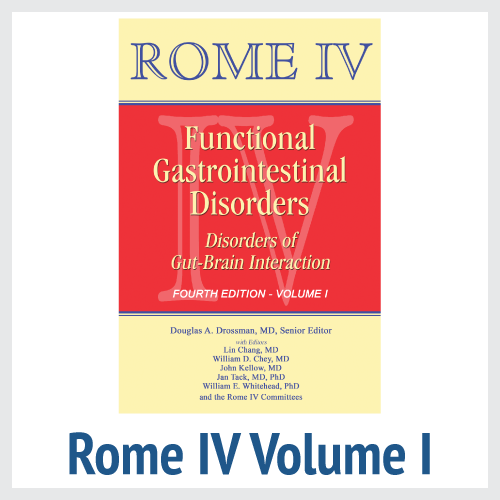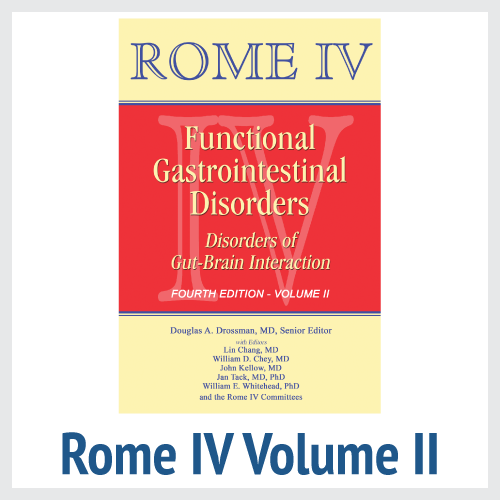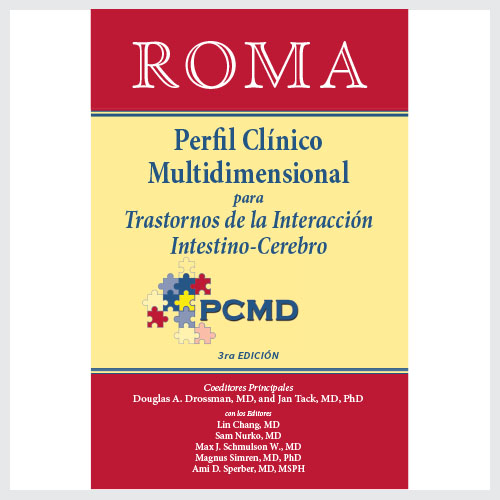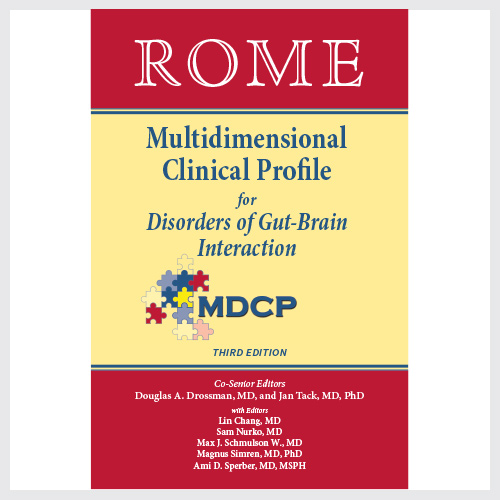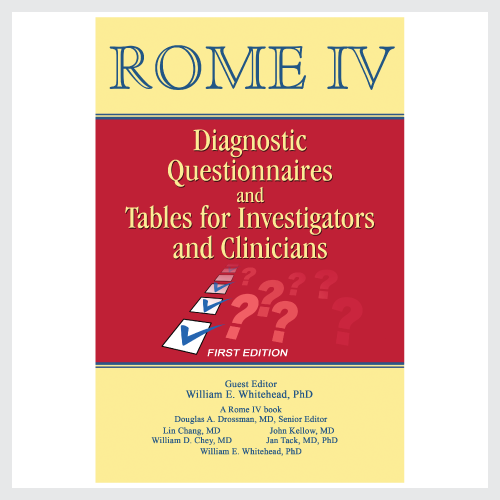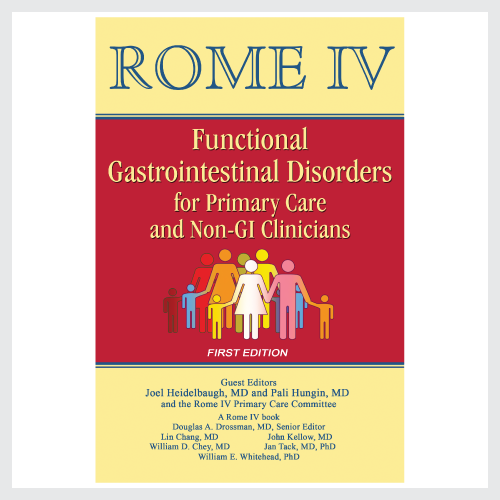-
Sale!Volume I contains a comprehensive set of background chapters on neurogastroenterology (basic science and physiology); pharmacology, pharmacokinetics and pharmacogenomics; age, gender, women’s health and the patient’s perspective; cross-cultural aspects of FGIDs; the role of the microenvironment (food and microbiota); and biopsychosocial aspects of assessment and management. For the Kindle ebook version, click here.
-
Sale!Volume II provides the key clinical information on 33 adult and 17 pediatric FGIDs from esophagus to anorectum, as well as a newly developed chapter on centrally mediated disorders of gastrointestinal pain. For each FGID we provide recent information on the epidemiology, pathophysiology, and psychosocial aspects along with evidence- and consensus-based recommendations on diagnosis and treatment. Volume II also contains new information and the revised Rome IV diagnostic criteria for adult and pediatric FGIDs. Also there are appendices that contain key reference information including the Rome IV diagnostic criteria tables, a comparison of the Rome III and Rome IV criteria, a flowchart to assist in the biopsychosocial assessment of patients with FGIDs and how to treat or when to seek a mental health consultant. There are also the validated Rome IV pediatric and adult questionnaires criteria for epidemiological and clinical research. For the Kindle ebook version, click here.
-
Esta nueva y ampliada 3a edición del Perfil Clínico Multidimensional (PCMD) ofrece mucho más al clínico para ayudarlo a navegar por las vías de tratamientos para pacientes con Trastornos de la Interacción Intestino-Cerebro (TIIC), llamados anteriormente Trastornos Funcionales Gastrointestinales.
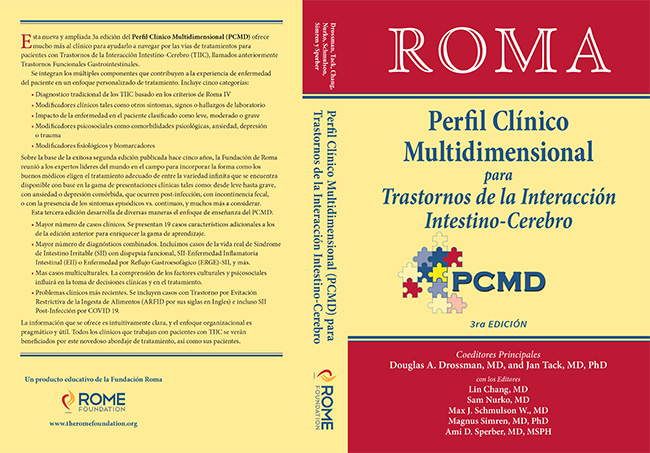
-
Sale!The MDCP redefines the ways in which clinicians can care for patients having even the most complex functional GI disorders. The 2nd edition is a case-based learning module that updates the content of the first MDCP book published in 2015. There are over 70 cases, more than double that in the first edition, and all cases are revised to meet the Rome IV diagnostic standards. For the Kindle ebook version, click here.
-
Sale!
This 3rd edition of the Rome Foundation MDCP allows us to fully address the dimensionality of clinical decision-making. Each diagnosis contains complete case presentations from mild to severe, and incorporates the five MDCP components.
It covers a broad spectrum of clinical presentations seen by gastroenterologists and primary care clinicians. The chapters follow the Rome IV classification system for adults and children on the esophageal, gastroduodenal, biliary, bowel, anorectal and CNS disorders.
-
This book, guest edited by William Whitehead, PhD, provides, in one compact volume, all that is needed for researchers and clinicians to perform studies in English-speaking countries. For the Kindle ebook version, click here.
-
Sale!This book has an introduction by co–guest editors Samuel Nurko, MD (chair of the Neonate-Toddler Committee) and Carlo Di Lorenzo, MD (chair of the Child-Adolescent Committee). Following this are the two updated and expanded pediatric chapters of Rome IV and also newly validated sets of the pediatric diagnostic questionnaires and criteria, a series of pediatric Multidimensional Clinical Profile (MDCP) cases for the Rome IV book, and a set of diagnostic algorithms for both neonate-toddler and child-adolescent. Thus, the pediatric gastroenterologist can possess a complete but compact book on FGIDs relative to his or her specialty. For the Kindle ebook version, click here.
-
Sale!The book is organized into 12 chapters that cover the spectrum of FGIDs, but in a fashion that is specifically designed to address the diagnoses most commonly seen, with emphasis on “how to” diagnosis and treatment information. For the Kindle ebook version, click here.

